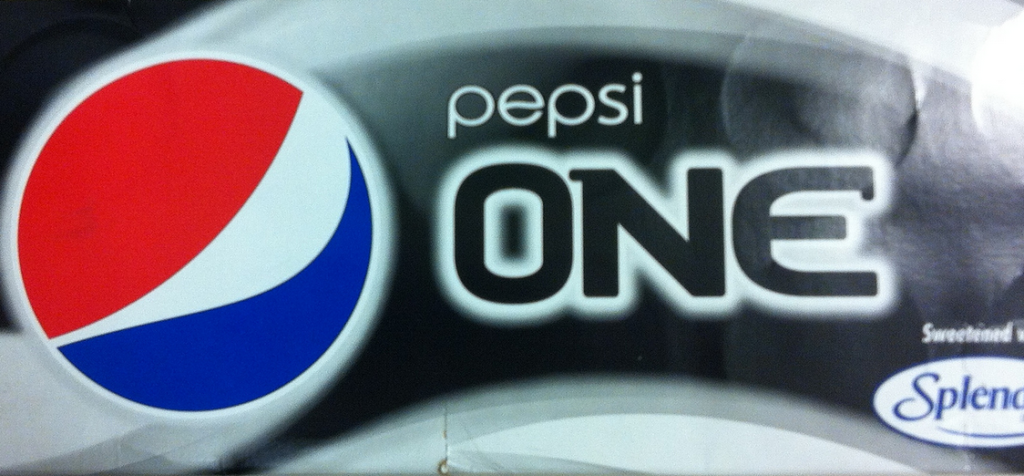Tests Show High Level Of Possible Carcinogen In Pepsi One
As recently as last summer, Pepsi was called out (by the Center for Environmental Health) for continuing to use a controversial caramel coloring — one that can contain a possible carcinogen and is included under hazard label regulation in California — in spite of calls for an end to its use. New tests from our coworkers at Consumer Reports confirm that Pepsi, Diet Pepsi, and Pepsi One all contain significant levels of the ingredient.
The potential carcinogen has the mouthful name of 4-methylimidazole but is also known by 4-MeI. Under California’s Proposition 65 law, any food or beverage sold in the state that exposes users to more than 29 micrograms of 4-MeI per day (not per can or bottle) is supposed to carry a health-warning label.
CR tested 81 cans and bottles of various popular brands of soft drinks from five manufacturers, purchased in both California and New York, over two periods of time. Consumer Reports tells Consumerist that their sample size isn’t big enough to recommend one brand over another, but notes that the results are concerning.
The first round of testing was done between April and September of 2013. During that time period, the California Pepsi drinks all showed high levels of 4-MeI with both Diet Pepsi and Pepsi One showing levels above 29 micrograms per 12 oz. can.
Pepsi says that Proposition 65 is based on per day exposure and not exposure per can. The company cites government consumption data that shows that the average amount of diet soda consumed by people who drink it is 100 milliliters per day, or less than a third of a 12-ounce can. For that reason, they say Pepsi One does not require cancer-risk warning labels—even if the amount of 4-MeI in a single can exceeds 29 micrograms.
Consumer Reports says, “While we cannot say that this violates California’s Prop 65, we believe that these levels are too high, and we have asked the California Attorney General to investigate.”
For the New York Pepsi drinks tested during the April-September period, the 4-MeI levels were much higher than the samples from California. Initial tests on Pepsi in NY found 174.4 micrograms of the chemical per can. Diet Pepsi test turned up 182.7 micrograms, while Pepsi One had the highest level — 195.3 micrograms per can.
Testing again in December showed that the California Pepsi drinks were still hovering around the 29 microgram per can line. In that test, Diet Pepsi was below 29 grams per can, but now regular Pepsi was above that amount.
When CR tested the New York versions of these drinks again in December 2013, both Pepsi and Diet Pepsi had notably lower levels of 4-MeI, about in line with what had been found in California. However, the Pepsi One test still showed a significant level of 4-MeI — 160.8 micrograms per can.
Comparing Pepsi 4-MeI levels to its competitors, most of the other tested beverages were well below 29 micrograms per can, regardless of location. For example, only around 4 micrograms of 4-MeI was found in Coke purchased on both coasts. Likewise, Coke Zero and Diet Coke turned up even lower levels and showed no real difference between samples from California or New York.
Tests on A&W Root Beer came in just below 29 micrograms per can, but showed no difference in 4-MeI levels between California and New York samples.
If you really hunger for 4-MeI, Malta Goya showed through-the-roof levels of the chemical in all samples, regardless of location. The most recent tests found 316.1 micrograms per can of the chemical in California and 307.5 per can in New York.
So, who in the world is only drinking 100 milliliters of diet soda a day? Most diet cola drinkers I know have recycling bins full of empties and consume the stuff compulsively.
“No matter how much consumers drink they don’t expect their beverages to have a potential carcinogen in them. And we don’t think 4-MeI should be in foods at all. Our tests of Coke samples show that it is possible to get to much lower levels,” said Consumer Reports.
This story has been edited to clarify and reiterate that Consumer Reports is not claiming that Pepsi products violate California law, to further clarify the difference between “per day” and “per can”, and to include statements from Consumer Reports regarding the sample size of their study and their opinion regarding the use of 4-MeI in food.
Want more consumer news? Visit our parent organization, Consumer Reports, for the latest on scams, recalls, and other consumer issues.


